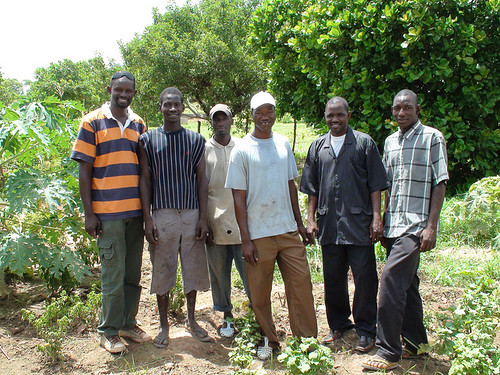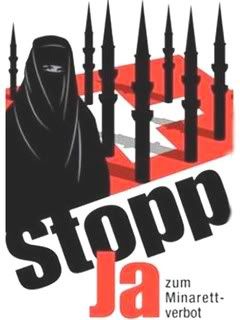The GOP-fueled efforts to whip up hysteria over the “Ground Zero Mosque” (which any one who reads and cares to will find that it’s not at Ground Zero and it’s quite a bit more than a Mosque–it would be just as accurate to call it the “Battery Park Muslim Swimming Pool”) may be failing. It was inspiring to read Mayor Michael Bloomberg’s brilliant remarks last week after the city decided not to capitulate to the cynical maneuver that tried to block it by declaring the existing structure a landmark, when it is simply old and of no architectural significance. After tracing the history of religious restriction and toleration in NYC, Bloomberg reminded us that none of the first responders on 9-11, over 400 of which perished in that mass murder, stopped to ask the people they were trying to save: What God do you pray to? But this morning I read that some adherents of a faith that claims to be about love, mercy, and forgiveness, a religion according to which even a former slave ship captain can be “saved” through its Lord’s “amazing grace,” have announced that they will commemorate 9-11 by ceremonially burning the Koran: http://tpmmuckraker.talkingpoi…
Motley Moose – Archive
Since 2008 – Progress Through Politics
Archive for August 2010
Innovation of the Week: Handling Pests with Care Instead of Chemicals
Cross posted from Worldwatch Institute’s Nourishing the Planet.
Between the years of 1975 – 1976, the Cambodian farmer, Name Name, like most farmers in the country during that time, grew vegetables and rice to feed the soldiers of the Lon Nol regime.

Using his bare hands, Name mixed the chemicals DDT, Folidol, Phostrin and Kontrin in order to keep the pests away from his crops. As a result, he suffered from strange and uncomfortable physical symptoms. Sometimes he was unable to move or feel his hands and lower arms, and he experienced pain in his lungs and heart. His short term memory was also affected. All of these symptoms often persisted for up to six months after exposure to the chemicals.
When the regime ended, Name went back to farming for himself and his family, and decided that he would do so without the use of any of the harmful chemical fertilizers that he realized are so dangerous to his health.
With training from organizations supported by the Food & Agriculture Organization (FAO) and its Regional Vegetable IPM Program in Asia – in addition to some of his own research – Name learned how to prepare botanical insecticides and organic composts from animal wastes and other materials already available on his farm. Now he is now able to avoid expensive and dangerous insecticides almost completely.
This alternative approach is called Integrated Pest Management (IPM) and it combines various strategies and practices to grow healthy crops, reduce damage from pests and minimize the use of artificial inputs. The FAO Regional IPM Program uses informal farmer training schools, facilitated by extension staff or other local farmers, to help train and implement field experiments. Local farmers learn new techniques from each other – as well as develop their own methods through facilitated field experiments – to minimize the use of chemical inputs on their farm.
In addition to raising animals and growing vegetables and rice, Name also produces several varieties of mushrooms organically which he sells at local markets. Though he does not yet receive a higher price for his organic produce, his crops are marketed to an increasingly conscious consumer base as being chemical free. And Name hopes that as awareness about the dangers of many chemical fertilizers increases, so will the value of his crops.
For now, he is happy to be producing enough food to feed his family and earn a significant portion of their income, without endangering his own health, or the health of those that enjoy his crops.
To read more about how farmers can reduce the financial – as well as environmental and health – costs of chemical inputs, see: and For Pest Control, Following Nature’s Lead, Tiny Bugs to Solve Big Pest Problem, In Botswana, Cultivating an Interest in Agriculture and Wildlife Conservation, Malawi’s Real Miracle, Emphasizing Malawi’s Indigenous Vegetables as Crops, and Finding ‘Abundance’ in What is Local.
Thank you for reading! As you may already know, Danielle Nierenberg begin_of_the_skype_highlighting end_of_the_skype_highlighting is traveling across sub-Saharan Africa visiting organizations and projects that provide environmentally sustainable solutions to hunger and poverty. She has already traveled to over 19 countries and visited 130 projects highlighting stories of hope and success in the region. She will be in Gabon next, so stay tuned for more writing, photos and video from her travels.
If you enjoy reading this diary, we blog daily on Nourishing the Planet, where you can also sign up for our newsletter to receive weekly blog and travel updates. Please don’t hesitate to comment on our posts, we check them daily and look forward to an ongoing discussion with you. You can also follow us on Twitter and Facebook.
A Message to Maxine Waters – Keep up the fight!
You all are aware of the fact that Maxine Waters, Congresswoman has vowed to fight the charges being leveled against her in Congress. I say – fight on my sister!
Perhaps it’s time to remind the progressive community about just who she is and why her voice is not only needed in the House – but in this nation.
ECOVA MALI: Building Home Grown Knowledge
Cross posted from Worldwatch Institute’s Nourishing the Planet.
This is the first part in a series about our visit with ECOVA MALI.
It’s not a new concept-farmers learning from other farmers about different agricultural techniques-but it’s one that can be difficult to execute. Foreign NGOs often offer trainings, but they don’t always fit farmers needs. But at ECOVA MALI‘s training center, 35 kilometers outside of Bamako, Mali’s capital, farmers are getting the skills they need to be better stewards of the environment, as well as better business women and men.

ECOVA was started by former Peace Corps Volunteers, Gregory Flatt and Cynthia Hellman. Along with Yacouba Kone, a Peace Corps program assistant and trainer for agriculture and natural resource management and Madou Camara, ECOVA’s Country Director, they’ve created a training center-and testing ground-for environmentally sustainable agricultural techniques. They want to encourage “home grown knowledge” by building local expertise. The facility, near the village of Terenabougou, uses local experts to teach farmers how intercropping, water conservation, agroforestry, seed saving, processing shea butter, and other practices can help both protect the environment and increase farmer income. ECOVA also instructs farmers about basic business, accounting, and marketing skills and provides small loans and “mini-grants” to allow farmers to buy tools and equipment they need and to start businesses.
ECOVA holds workshops based on requests from farmer communities-for example, they’ve worked with women’s groups from nearby communities, teaching them how to process shea butter. ECOVA hopes to eventually start training farmers about small-scale livestock production, including raising poultry and goats.
Listen to Madou Camara talk about ECOVA’s farmer to farmer training method:
Thank you for reading! As you may already know, Danielle Nierenberg is traveling across sub-Saharan Africa visiting organizations and projects that provide environmentally sustainable solutions to hunger and poverty. She has already traveled to over 19 countries and visited 130 projects highlighting stories of hope and success in the region. She will be in Gabon next, so stay tuned for more writing, photos and video from her travels.
If you enjoy reading this diary, we blog daily on Nourishing the Planet, where you can also sign up for our newsletter to receive weekly blog and travel updates. Please don’t hesitate to comment on our posts, we check them daily and look forward to an ongoing discussion with you. You can also follow us on Twitter and Facebook.
Guns and Butter
We are spending $2 Billion a week in Afghanistan. If you want to see zeros, that’s $2,000,000,000.00 a week. It also means $104 Billion a year.
Meanwhile, we can’t afford to keep our education budgets in functional condition. We can’t reduce our National Debt. We can’t bring down our operating deficit. And we are spending a fortune on foreign servicing (read China) of our debt.
Where Al Gore Did Better than Barack Obama: What Conventional Wisdom Doesn’t Tell You
By: Inoljt, http://mypolitikal.com/
Several days after the 2008 presidential election, the New York Times produced a famous map of voting shifts since 2004. Most politics buffs have seen this map; according to it, Appalachia “voted more Republican, while the rest of the nation shifted more Democratic.”

There is something else occurring here, however, which the map hides – and which almost nobody has perceived. This trend goes strongly, strongly against conventional wisdom.
To unearth this trend, let’s move back one election – to former Vice President Al Gore’s 2000 tie with former President George W. Bush. Before going below the fold, I invite you to guess – which states did Mr. Gore do better than President Barack Obama?
Exercises in Self-Loathing

The label “Republican woman” has always seemed, to me, to embody a certain amount of inherent self-loathing. The same goes in my mind, I suppose, for “African American Republican,” “Hispanic Republican,” “gay Republican,” and the list continues… Truly, the only people I believe have any real business being Republicans these days (and by that I mean, the only ones who should find conservatism to be in their own self-interest) are rich white dudes who don’t want to pay their fair share of taxes, or maybe even poor white bigots who have nowhere else to go because they would meet the sort of people they hate at every turn under the rather diverse “big tent” of the Democratic party. But nowadays the blatant self-loathing certain groups of Republicans are displaying is becoming increasingly pronounced. Two examples I’ve come across in the last week, which I just couldn’t help commenting on…
Open Thread: In Memoriam Tony Judt
Tony Judt, Professor of History at NYU, historian, thinker, teacher and polemicist, died surrounded by his family in his Manhattan Apartment yesterday afternoon, having struggled for two long years with Lou Gehrig’s disease.

I’ve written about Tony before, and here’s a picture of us both (me on the right, Tony in the middle, and Polish producer and activist Krzysztof Czyzewski on the left) from happier days in Oxford three years ago.
Though not unexpected, this is a personal loss for me, because Tony was both friend and mentor (as another friend has written “severe and kind”). I’d recently interviewed him for Prospective Magazine, and written an appraisal of his heroic stand on European history, Identity Politics, Israel, Iraq, and the corruptions of Marxism and the future of the left, published only this month….
Open Thread: Prop 8 Decision and Coming Out
Explaining the Swiss Minaret Vote
By: Inoljt, http://mypolitikal.com/

Switzerland’s landslide vote to ban Muslim minarets surprised many pundits and commentators, more familiar with the nation’s image as a bastion of tolerance and European enlightenment.
These results, in fact, are not so surprising. They derive from the peculiar structure of Swiss democracy, which effectively creates a voter base less diverse than the general public. These voters are generally predisposed to support such initiatives as the minaret vote.
I am specifically talking about Swiss citizenship. Becoming a Swiss citizen implies that one has become part of the Swiss people, and the Swiss have a very strict definitions of what this means. Since – of course – only citizens may vote, this strictness directly impacts the Swiss electorate.
More below.

